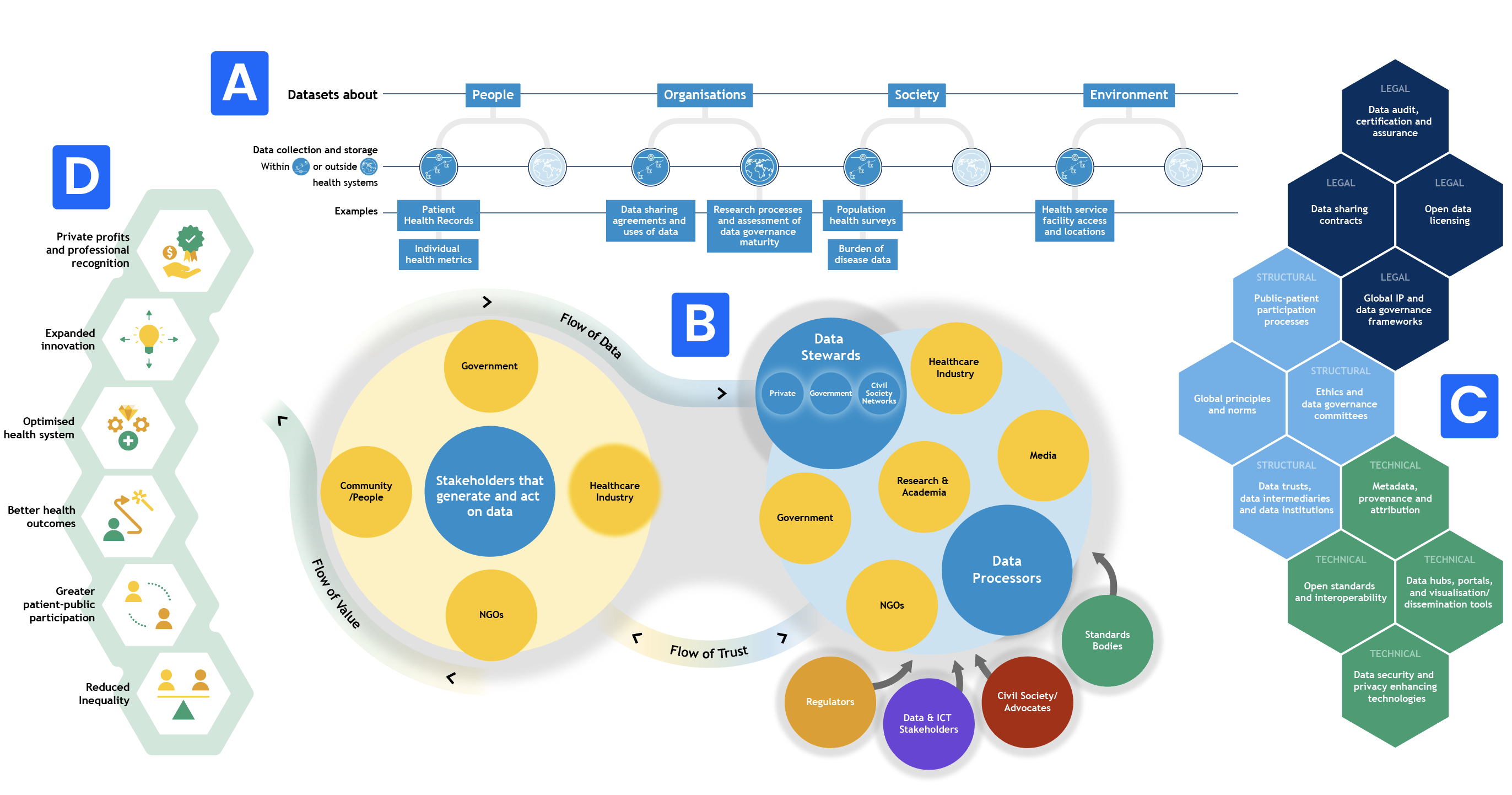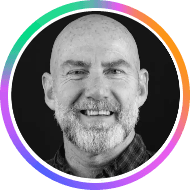Understand
Health Data Governance: Ecosystem and Maturity

(Source image above: World Health Organization)
Mark Boyd, working as Senior Policy Associate with the Open Data Institute, contributed to the development of 3 new resources to be used as background materials (pre-reads) for the World Health Organzation's Data Governance Summit. The Summit is open to anyone with an interest in health data governance.
Download the ODI's pre-reads on data governance best practices, created for the World Health Organization
Visit the WHO Data Governance Summit page and download the three pre-reads:
The pre-reads provide a summary of where the sector is at in regards to three key areas for health data:
The health data landscape
For this work, Mark Boyd, working for the ODI, helped design an overview of the health data ecosystem, or landscape.

A. Datasets
Health data is about people, organisations, society and the environment. Data is stored/collected both within and outside the health sector.
B. Stakeholders
Health data is used to generate value by a range of stakeholders that draw on data collected and managed by data stewards. Data stewards work with data processors along the data journey (from collection, through validation, storage, and sharing, to use and analysis).
C. Data governance processes
Underpinning the way data stewards and data processors handle data are data governance principles and processes. Data governance helps ensure that the management and use of health data is handled responsibly and fosters trust.
D. Value generation
Health data, when used by stakeholders, generates a number of personal, commercial, societal and environmental benefits.
In the pre-read decks prepared by the ODI, this model was used to demonstrate how health data and value flow in specific case studies. These include:
Other decks prepared by the ODI focused on health data as a global public good and the current global maturity and adoption of data governance processes.
You can download all three decks from the WHO Data Governance Summit registration page.
This research was led by the ODI and Vice President of Strategy, Dr Jeni Tennison. Thanks to my colleague Shirley Torho for feedback on drafts and for participation in stakeholder interviews.
Article references

Mark Boyd
DIRECTORmark@platformable.com